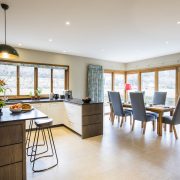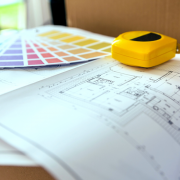Home extensions: Dos and Don’ts
An extension is the perfect way to get extra space without having to move – if you can get it right. We look at home major dos and don’ts to extending your home.
Adding an extension isn’t simply a case of tacking new rooms onto your home. You must think carefully about how old and new work together, both internally and externally, as well as the costs, planning permission and project management implications.
Our tips will help you get your project off to a great start.
Do
- Know your objectives and create a realistic project schedule.
- Set up a contingency fund.
- Look at finance carefully. What is the best deal on loans? How much value will your extension add?
- Approach the planners first to find out what is going to be acceptable.
- Put structural works before aesthetic improvements and work from the outside of the house inwards.
- Always try to go for a fixed price contract.
- Make sure the designer understands and allows for joist movements. Due to us having a dryer climate in recent years, buildings have tended to move more.
- Aim to get the shell weathertight as early as possible.
- Check that the builder has a good trading history; he is able to offer references; and that he has third party insurance.
- Check party wall agreements – if building up to your boundary, you must notify your neighbour and have their written permission.
- If your extension will be built over the area of a sewer, you will need to contact your water board before beginning work.
- Have a plan for where you’ll be living while the work is carried out.
- Understand the effect that moving trees or roots will have on your ground conditions.
Don’t
- Change your mind if at all possible. It could result in a big budget overspend.
- Forget the contract. It is essential to cover yourself.
- Pay for any work in advance.
- Necessarily go for the lowest quote. References are much more important.
- Add too many bedrooms without enough bathrooms. A good rule to go by is having one bathroom for every two bedrooms, with an en-suite for every guest bedroom. This could affect end value.
- Run into money troubles. Make sure your extension is correctly planned, designed and costed.
- Assume your heating will be suitable for a larger house. Adding an extension will also add demand to your current hot water system – which may not be able to cope.
Don’t forget to think ahead
By thinking ahead sufficiently, you will have planned your extension to be a wonderful source of satisfaction to everyone living in the house, and to also add value to the property, hopefully more than what was spent.
If you need assistance or advice in any aspect of your home building journey, please don’t hesitate to get in touch.










Leave a Reply
Want to join the discussion?Feel free to contribute!